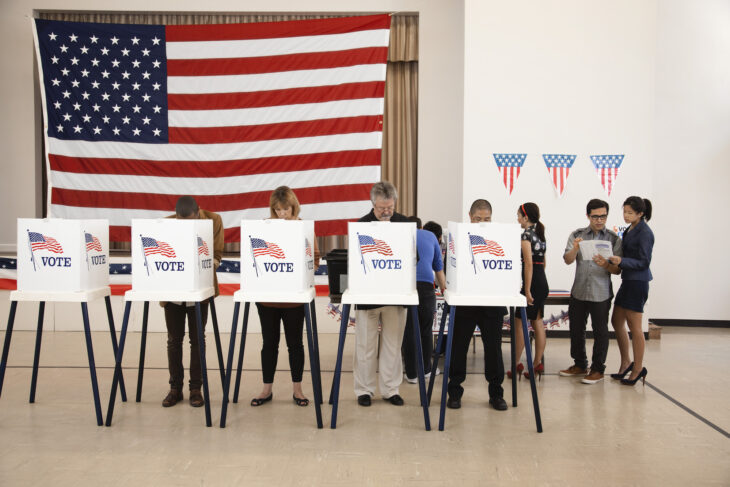“The King, our sovereign Lord… shall be taken, accepted, and reputed as the only supreme head in earth of the Church of England called Anglicana Ecclesia… and that our said Lord… shall have full power and authority from time to time to visit, repress, redress, redeem… all such errors, heresies, abuses… which, by any manner, spiritual authority or jurisdiction, ought or may lawfully be reformed… any usage, foreign laws, foreign authority… to the authority notwithstanding.”
— Supremacy Act (1534)
After centuries of British colonialism strident demands made by nations, which were so affected by it, to become republics seem to exude a greater sense of urgency in recent times than ever before. The death of Her Royal Highness Queen Elizabeth II, and the ascension of King Charles III to the throne have acted as lightning rods and as spotlights on this issue which has existed for many years. For such peoples the monarchy has become not only an anachronism, but also anathema. Hence, they reason that all vestiges of its symbolisms and its traditions be removed forthwith from the varied forms of their governance and their attendant institutions created to that end.
The speed for achieving such a goal — whether by the removal of governors general as representatives of the Crown, for example, or, as in the case of Jamaica, by the substitution of the British Privy Council with that of the Caribbean Court of Justice (CCJ) as the final court of appeal — is a matter of sheer political will as it is a matter of perspective. But, how broad is the scope of political colonialism? And, is the call for the establishment of republics in former British colonies and its so-called “protectorates” too narrow?
As the British monarch is the head of the Church of England — AKA the Anglican or Episcopalian church — as it exists in former colonies, to a greater or lesser extent, should not such a move by governments within the British Commonwealth include the evisceration or revamping of this institution? And, if this is not the case, how does one get around this idea of a break with our colonial past by maintaining the status quo, given that the church was unquestionably, inextricably, and inedibly involved in colonialism and slavery?
In March of 2020 the Church of England apologised for its historic links to slavery calling it “a source of shame”. It has been asserted that dozens of its clergymen owned slaves. Its missionary organisation, The Society for the Propagation of the Gospel, owned a plantation in Barbados, branding its slaves across the chest with the word “Society”. The “Society” was first incorporated under Royal Charter in 1701 as a high church missionary organization of the Church of England. And so, what of this sordid history of the Anglican Church in any discussion with respect to republicanism?
The Anglican Church was Jamaica’s only established church until 1870. One only needs to review history and to recall the many state occasions since Jamaica’s Independence in 1962 to realize how it took the lead in officiating in those ceremonies. Most Jamaicans are Protestant. The largest denominations are the Seventh-day Adventist and Pentecostal churches. A smaller but still significant number of religious adherents belong to various denominations using the name Church of God. Only a small proportion of Jamaicans, by comparison, still attend the Anglican Church.
If the Anglican Church no longer holds centre stage, whether by the prestige of yore or through the large number of devotees it once boasted, then is the question of its continued existence on political, cultural and religious grounds still relevant? Does it undermine all efforts at re-wiring the psychology of the populace — post colonialism — which would allow for the shifting of more “indigenous” cultural elements to the fore which were at one time held in abeyance on the periphery of national life because of it?
Most of all, can its theology and its administration, born of the rift between the England of King Henry VIII and the Roman Catholic Church be trusted and, naturally, relied on? It bears repeating at this juncture that the British monarch — now in the person of King Charles III — is the head of the church, and not the Archbishop of Canterbury.
The title of Supreme Head of the Church of England was created in 1531 for King Henry VIII when he first began to separate the Church of England from the authority of the Holy See and from the allegiance to the papacy, then represented by Pope Clement VII. The Act of Supremacy of 1534 confirmed The King’s status as having supremacy over the church and required that the nobility swear an oath recognising the monarch’s supremacy. By 1536, Henry had broken with Rome. Pope Paul III then excommunicated him in 1538 over his divorce from Catherine of Aragon.
This writer was raised in the Anglican Church for most of his formative years. The high priestly robes; the high flown clerical titles bordering on deification; the ostentatious ornaments; the anglicized and esoteric rituals; the ethnologically aberrant traditions alien to Caribbean sensibilities; the incense; the bells and the scripted prayers are all quite familiar to him. But so were some of the priests who assiduously embraced and defended those trappings of a religion which is a derivation of a simple yet profound faith born in an obscure stable in Palestine.
Though staunch gatekeepers of an ideology that was forged for Euro-centric, monarchical sensibilities, they projected themselves as “grass roots” advocates of the people, as culturally aware patriots, and even as being on the right side of representational politics to those ends. And yet none seemed aware or was willing to admit the gross contradiction in terms.
Perhaps, like Dr. Martin Luther and his struggles with the Roman Catholic Church during The Reformation, they felt that they could effect change from within the institution. But how much can those at the end of the stream do at the local level against the steady and the powerful ecclesiastical currents which flow from the head of the stream with the fountainhead in Canterbury Cathedral, Kent?
In a meeting with a priest, one now retired, it was made clear to this writer that all other Christian denominations were inferior to the Anglican Church, theologically speaking. His interrogation by the priest in question was to ascertain — in the vein of The Spanish Inquisition, though, fortunately, without physical torture and dismemberment — the reason for the transference of his allegiance elsewhere. This writer was excoriated accordingly after an explanation for his actions was given.
The relative of another member of the clergy boasted that though he “preached out of the Bible” he did not “preach save your soul sermons”, which is a position and a practice that is wholly inconsistent with the ministries of Jesus and of His apostles.
All that having been said, they beg important questions. Should any positive contributions made to society by the Anglican Church be used to mask, erase, or expiate its role in the expansion and maintenance of British imperialism? Should its work, especially in the field of education, be deemed as some form of reparations or as a model of what they could look like?
The church owns and operates 79 basic schools; 26 infant, primary and all-age schools in addition to 65 primary and all-age schools leased to the Government. The church operates 9 preparatory schools; 11 high schools (including Kingston College, Glenmuir High School, St Jago High School, St Hugh’s High School, The Queen’s, and deCarteret College), and one teacher training institution — Church Teachers’ College in Mandeville.
Perhaps excising the malignancy of monarchy with the scalpel of republicanism or political pragmatism is far more invasive, far more involved, and far more complicated than most people actually think. But, despite all of those issues of concern, is that reason enough not to pursue this course of action?



